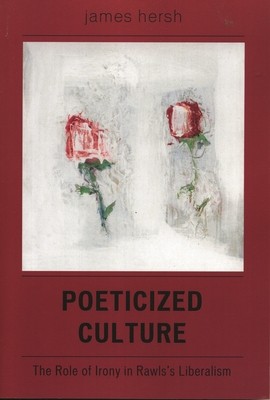
- We will send in 10–14 business days.
- Author: James Hersh
- Publisher: University Press of America
- ISBN-10: 0761832602
- ISBN-13: 9780761832607
- Format: 15.2 x 22.9 x 1.6 cm, hardcover
- Language: English
- SAVE -10% with code: EXTRA
Reviews
Description
In Poeticized Culture, James Hersh shows the John Rawls' framework of liberal public reason (Political Liberalism, 1993), within which he proposes his scheme of justice as fairness, includes an unacknowledged call for a Richard Rortian 'poeticized culture.' Hersh argues that, despite Rawls's intentions, his framework within which he proposes justice as fairness demands a Rortian ironic perspective and does not allow for citizens to hold absolute or literal religious beliefs. Hersh argues that this Rortian perspective makes Rawls's justice as fairness the most reasonable scheme for the world's emerging democracies, particularly for those democracies emerging in the Middle East where literal religious beliefs are held with such fervor.
EXTRA 10 % discount with code: EXTRA
The promotion ends in 15d.06:13:40
The discount code is valid when purchasing from 10 €. Discounts do not stack.
- Author: James Hersh
- Publisher: University Press of America
- ISBN-10: 0761832602
- ISBN-13: 9780761832607
- Format: 15.2 x 22.9 x 1.6 cm, hardcover
- Language: English English
In Poeticized Culture, James Hersh shows the John Rawls' framework of liberal public reason (Political Liberalism, 1993), within which he proposes his scheme of justice as fairness, includes an unacknowledged call for a Richard Rortian 'poeticized culture.' Hersh argues that, despite Rawls's intentions, his framework within which he proposes justice as fairness demands a Rortian ironic perspective and does not allow for citizens to hold absolute or literal religious beliefs. Hersh argues that this Rortian perspective makes Rawls's justice as fairness the most reasonable scheme for the world's emerging democracies, particularly for those democracies emerging in the Middle East where literal religious beliefs are held with such fervor.


Reviews